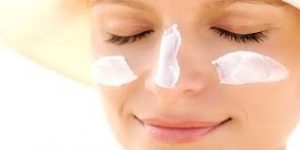Summer Sun Tips

Summer is almost here! While we in Colorado should use sun protection year round, due to the altitude and our storied 300 days of sunshine, it is particularly important during the long summer days.
While American culture says that a tan equals healthy, there is no such thing as a healthy tan! The increase in skin pigment, called melanin, which causes the color change in your skin is a sign of damage. Once skin is exposed to UV radiation, it increases the production of melanin in an attempt to protect the skin from further damage.
Ultraviolet A (UVA) rays can do lasting damage. They penetrate the skin more deeply affecting the DNA of the skin’s cells, attacking cell membranes, and changing the proteins that make up collagen and elastin, which support the skin’s fibrous structure. By undermining these parts of the skin, UVA rays lead directly to wrinkles and sagging of the skin. Ultraviolet B UVB rays will usually burn the superficial layers of your skin. Both UVA and UVB rays play a role in the development of skin cancer. To protect against damage from the sun’s rays, it is important to follow some simple rules to protect your skin.
Avoid the sun between 10 a.m. and 4 p.m., when the sun’s rays are strongest. Follow the shadow rule: “Short Shadow- Seek Shade.” The intensity of UV rays is directly related to the angle of the sun. If the angle of the sun makes your shadow shorter than you are tall, the intensity of the UV rays from the sun is more likely to cause sunburn.
Dress for sun protection. To protect yourself effectively from undesirable sun exposure, follow these simple rules.
- The best protective clothes are loose fitting garments made from fabric that is tightly woven.
- Darker colors may offer more protection than light-colored clothing.
- Dry clothes provide better protection than wet ones.
- A wide-brimmed hat that offers a lot of shade is the best choice for protecting head, face and neck.
Wear sunscreen with an SPF of 15 or higher. Sunscreens provide protection by absorbing, reflecting or scattering the sun’s rays. They may also contain chemicals that interact with the skin to protect it from UV rays. Sunscreens are rated according to their effectiveness by the sun protection factor (SPF). A product’s SPF number helps determine how long the product will protect you before you need to re-apply it. For example, you may normally burn in 20 minutes. If you apply an SPF 15 sunscreen, you’ll be protected for about 300 minutes, or five hours (SPF 15 x 20 minutes = 300 minutes). To get the most protection from your sunscreen, apply it liberally about 30 minutes before sun exposure and be sure to re-apply, particularly if you are perspiring or swimming.
Recently, there has been some controversy about using sunscreen. A small study, published in Free Radical Biology & Medicine, has suggested that while sunscreen prevents free-radical damage to the skin from the sun, it also might cause damage. The products approved by the FDA for use in sunscreen— octyl methoxycinnamate, octocrylene, and oxybenzone — can boost the number of free radicals over time when they break down and are absorbed into the skin. More research is needed, but in the meantime, it is still important to use sun protection, given that we have so much sun exposure in Colorado.

















